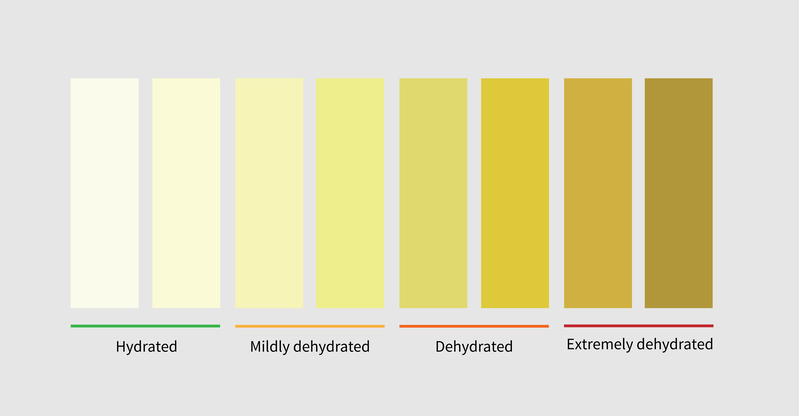Water makes up over half of your body, and without it, your survival would only last a few days. This clearly highlights the vital role of hydration. Whether you’re diving into intense workouts or facing different environmental conditions, the significance of hydration cannot be understated. While the science behind hydration can get intricate, let’s focus on practical advice that anyone interested in health and fitness can easily follow.
Urine hydration color

Simple guidelines for staying hydrated
For most individuals, a daily water intake of 3-4 liters (roughly 0.75-1 gallons) should suffice. Though the recommended daily intake is around 2.7 liters for women and 3.7 liters for men, it’s essential to note that factors like age, activity level, pregnancy, lactation, and environment play into optimal hydration. Relying solely on thirst might not always ensure proper hydration. Luckily, there are straightforward methods to gauge your hydration status. The color and odor of your urine can be telling indicators. Pale and odorless urine signifies good hydration, while darker or stronger-smelling urine could mean you’re somewhat dehydrated. Also, your body weight can provide insights; if your fluid replacement is effective, you shouldn’t see drastic weight changes after a workout.
Evaluating hydration: beyond thirst
Monitoring hydration doesn’t just depend on quenching your thirst. Roughly 20-30% of your daily water intake comes from food, with the remaining 70-80% from beverages. Whether it’s food or drinks, what matters is getting enough water. While tracking your drink intake is easy, MacroFactor offers a comprehensive approach by accounting for the water content in your food.
Balancing electrolytes for optimal hydration
Maintaining a balance of electrolytes like sodium, potassium, and chloride is crucial. For those on a balanced diet, there’s usually no need to obsess over electrolytes. Imbalances typically occur under extreme dietary practices, excessive sweating, or drastic water intake changes. If your hydration needs are unique due to intense training, challenging environments, or medical conditions, consulting a medical professional is wise.
Hydration and body weight goals
Even if your hydration needs seem straightforward, keeping an eye on fluid intake can aid weight-related objectives. Fluctuations in body water can lead to shifts in scale weight, especially after a high-sodium meal or changes in carbohydrate intake. During intense workouts or overnight fasting, your weight can also change. This underlines the importance of considering sodium intake, carbs, and hydration when tracking weight changes.